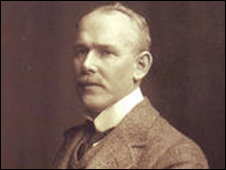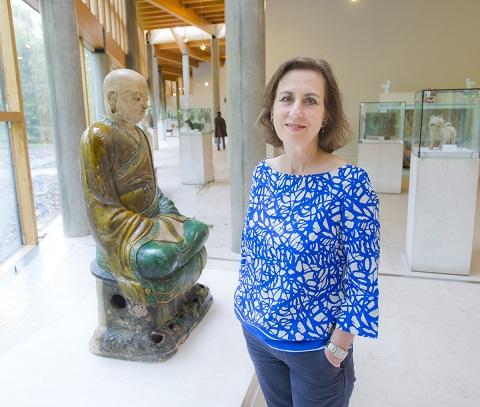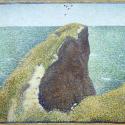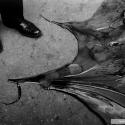Had the wealthy William Burrell had a son, Glasgow might not have acquired the world-class art collection that the shipping entrepreneur amassed during his long life. But with the birth of a sole daughter came both ambitions and suspicion – he raised Marion to succeed to his art empire, then imagined every suitor to be a gold-digger, breaking off her third engagement with a public announcement in the newspaper that took even her by surprise.
Father and child were never reconciled, and upon his death at 95, Burrell, by now the owner of top quality Chinese and Islamic artefacts, as well as superlative pictures, notably by Degas, gave the lot to the city that had made him rich.
Like so many very wealthy people from penniless beginnings, he was thrifty to the end
Kirsty Wark, retracing the story of the self-taught art lover, son of a dressmaker, in The Man Who Collected the World: William Burrell, was reverential towards a figure by whom she has always been fascinated, observing that he never commissioned a self-portrait. She glossed magnificently over the nigh on 40 years between the promise made in 1944 to bequeath the collection to the city, and the opening in 1983 of a purpose-built home, in Pollok Park, by saying that “stipulations imposed” had been met.
What she didn’t explain was that Burrell (pictured below right) had stated that the collection must be shown in a rural setting, within a certain distance of the city centre, a tall order for Glasgow. Nor was any mention made of tentative talks now underway about a tour overseas – against the terms of the bequest, prompting talk of a legal challenge – and to the British Museum, when Pollok Park is closed for upgrading. Maybe the subtext of this programme was to oil the wheels of that particular caravan.
 Whatever its function, The Man Who Collected the World revealed Burrell as a determined shopper, who brought to the acquisition of art the same ruthless pragmatism that made him rich. Joining his father in the burgeoning shipping industry at the age of 14, he had sold his fleet at the top of the market by 1900, after which he concentrated on building up the collection that would eventually comprise more than 8,000 handpicked pieces. In the Depression he bought the gateway of Hornby Castle, which is a focal point of the Pollok Park gallery, from the American millionaire Randolph Hirst, for £150, much less than Hirst had paid for it.
Whatever its function, The Man Who Collected the World revealed Burrell as a determined shopper, who brought to the acquisition of art the same ruthless pragmatism that made him rich. Joining his father in the burgeoning shipping industry at the age of 14, he had sold his fleet at the top of the market by 1900, after which he concentrated on building up the collection that would eventually comprise more than 8,000 handpicked pieces. In the Depression he bought the gateway of Hornby Castle, which is a focal point of the Pollok Park gallery, from the American millionaire Randolph Hirst, for £150, much less than Hirst had paid for it.
From buying his first painting at auction in his teens, and selling it at a loss, Burrell developed taste and discernment that drew him particularly to art from ancient Persia. In an enviable moment, Wark first watched and then padded around the edge of a vast, ornate carpet, not normally on display at Pollok Park, which depicts an earthly paradise to mirror heaven, teeming with creatures in an abundant garden.
When he promised the collection to Glasgow in his seventies he set about filling the gaps, to create a seamless 4,000-year history of civilisation in art. Although he kept no records of his dealings for decades, he went on to record each acquisition in cheap exercise books, with sketches of each item: like so many very wealthy people from penniless beginnings, he was thrifty to the end. An ancestor in Northumberland had gambled away both fortune and status. Burrell, who was knighted in 1927 for services to art, was determined to have both. And that, perhaps, was his ultimate acquisition.












![SEX MONEY RACE RELIGION [2016] by Gilbert and George. Installation shot of Gilbert & George 21ST CENTURY PICTURES Hayward Gallery](/sites/default/files/styles/thumbnail_125_x_125_/public/mastimages/Gilbert%20%26%20George_%2021ST%20CENTURY%20PICTURES.%20SEX%20MONEY%20RACE%20RELIGION%20%5B2016%5D.%20Photo_%20Mark%20Blower.%20Courtesy%20of%20the%20Gilbert%20%26%20George%20and%20the%20Hayward%20Gallery._0.jpg?itok=3oW-Y84i)


Add comment